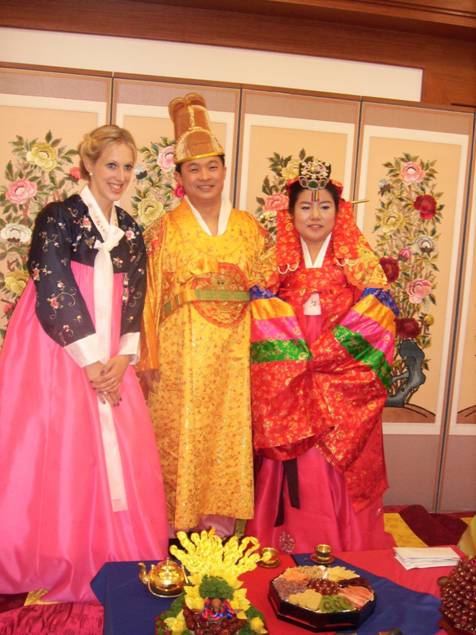

Emma CAMPBELL
The Australian National University, Australia
Exchange to Seoul National University, South Korea
Before beginning my PhD at the Australian National University, I had worked for Cathay Pacific Airways, the Hong Kong-based airline, for many years and was therefore very familiar with the Cheung Kong Group. When I was made aware of the Endeavour Australia Cheung Kong Research Fellowship, I was immediately attracted not only by the generous funding offered but by the prestige of a fellowship sponsored by both the Australian Government and the world-renowned and prestigious Cheung Kong Group. For someone conducting research on and hoping for a career in Northeast Asia, a fellowship with such an association is invaluable.
The Korean peninsula is vital to the political and economic stability of the whole Northeast Asia region. My research focuses on the young people of South Korea, their national identity and their changing attitudes to unification with the North. My research hopes to provide an insight into the types of social issues and problems that may arise should unification occur in the near or not-so-near future, which in turn will offer an informative guide when formulating policy towards North Korea and unification. Through my research, I also wish to provide a better understanding of South Koreaˇ¦s younger generation who have grown up in a democratic, economically-prosperous country and whose experiences are different from those of any previous generations.
In order to effectively conduct this research, I needed to live in South Korea amongst fellow academics and researchers who had relevant expertise in the study of Korean unification. Seoul National Universityˇ¦s Institute for Peace and Unification Studies (IPUS) is one of Koreaˇ¦s top centres for unification research and is headed by Professor Park Myoung-kyu, a renowned unification scholar. Supported by the prestigious Endeavour Australia Cheung Kong Awards programme, I was able to arrange a visiting fellowship to the IPUS.

The first part of my research involved locating key documentary resources from places such as the IPUS, the National Assembly Library and the Korea Institute for National Unification. These documents include surveys from the mid-1980s onwards examining changing attitudes amongst young people to unification. Once I found the documents, I spent time translating and analyzing them to discover how attitudes amongst young people and between generations had changed over time. Living in Korea, I was also able to take additional Korean language classes to further improve my language and translation skills.
The second part of my research involved interviews with students, activists, journalists and academics to explore their views on my research topic. Some of these interviews were conducted in English while others were in Korean. These interviews were particularly useful because they shed light on some of the survey results I had found. For example, some surveys suggested that young people were increasingly losing interest in the issue of unification. Direct interviews allowed me to discover the concerns and fears that were fuelling this negative sentiment towards unification and North Korea.
Korea is a developed nation where the cost of living can be prohibitive for PhD students who wish to carry out an extended period of research. The funding from the fellowship was a great help. It allowed me to live in Korea for a full six months. In addition, even though I have a good grasp of the language, I still needed a research assistant to help me with difficult translation work and to assess research and library databases. The fellowship funding enabled me to have such an assistant.
I had been to Korea many times prior to this research trip. This time, however, I had the time and freedom to carry out in-depth research and to really understand the ebb and flow of Korean society, especially in regards to young Koreans and their attitude towards unification. Through this extended stay at a prestigious institution, I made many useful contacts which would be crucial for my future research and career. As I begin writing my thesis, publishing articles and planning my next career move, it is becoming increasingly clear that the benefits of this awards programme will extend far beyond just financial support. It will have a lasting and substantial impact on my future research career.
© Copyright 2018 CK Group. All rights reserved.
